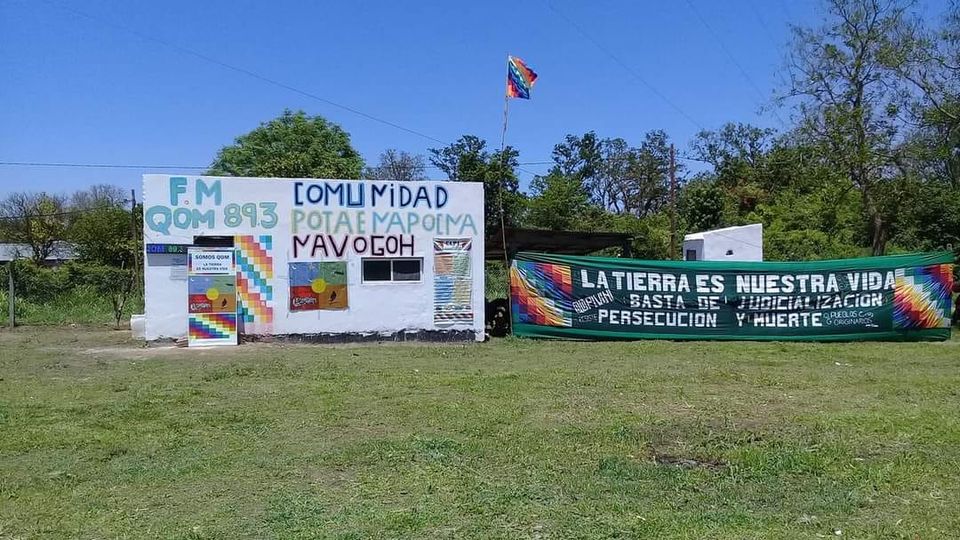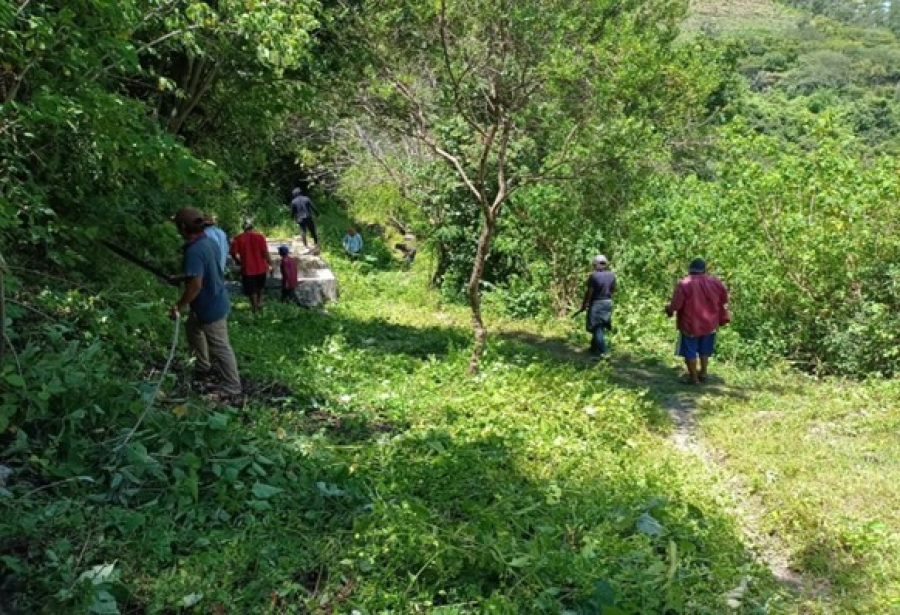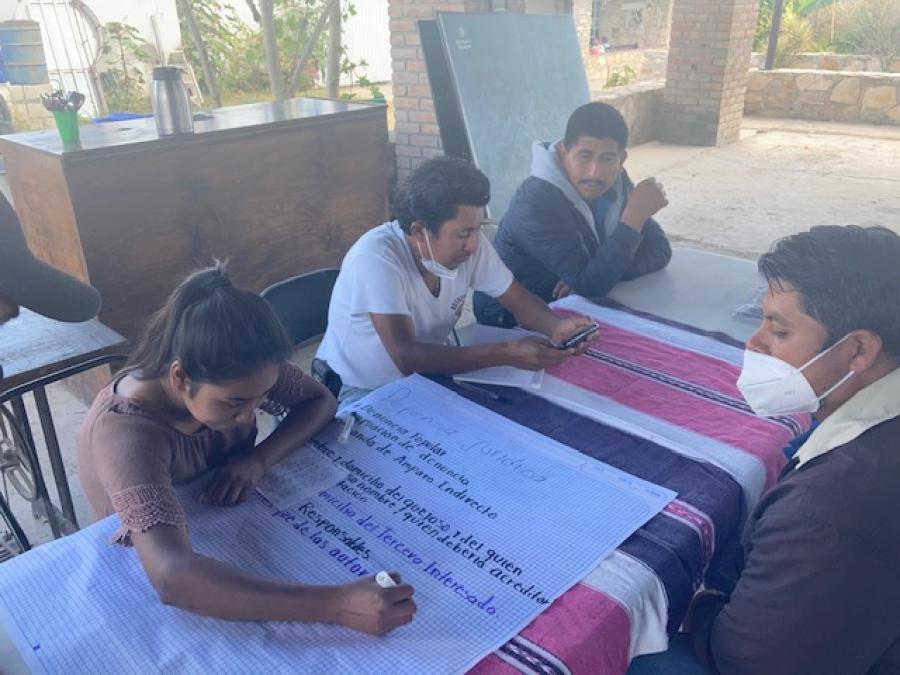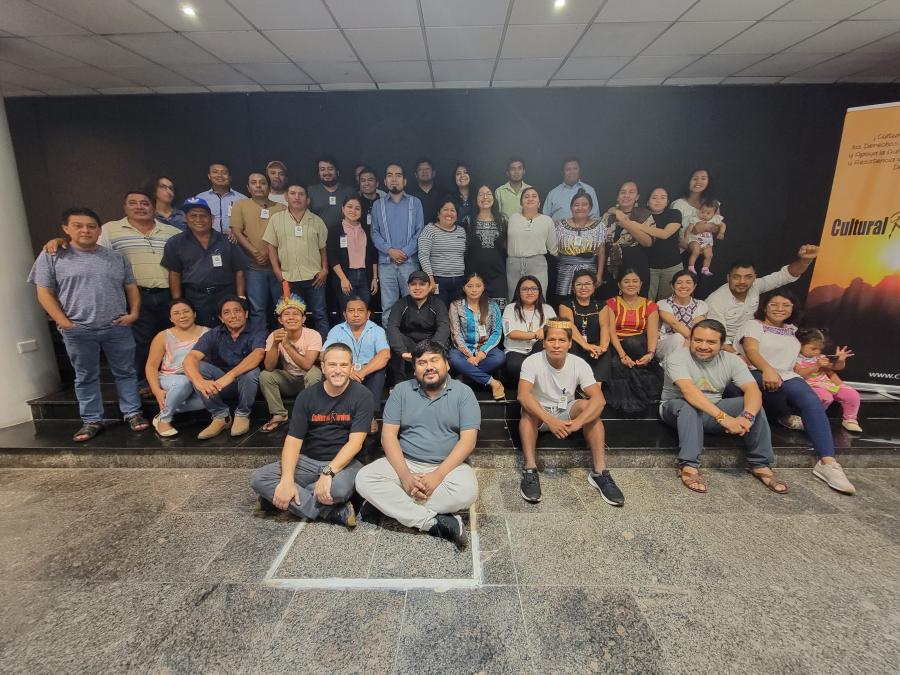
By Felix Diaz
In this process of struggle, we, the Indigenous Peoples of Argentina, seek institutional support to be able to protect our territory, that is, the environment and our Mother Earth. We live in a region called the Great South American Chaco, which is between the borders of Paraguay, Argentina, and Bolivia. We have always tried to protect the forests, rivers, and lagoons because they are resources that were created precisely to balance nature and the environment, and also human and non-human beings. Indigenous Peoples have been able to survive through the use of natural resources in those times when there were no colonizers.
We see the mountain as a supermarket because there are the natural resources that one needs, food, medicine, and spirituality and we also see the issue of caring for water with great responsibility because we have learned from our ancestors how we see the father sun, the mother earth, these parents who taught us that water is like the blood that circulates on the planet. That is why these three things are closely linked. If we do not defend our forests and our waters, the situation that humanity is experiencing could disappear because if there are no forests, there is no future; if there is no water, there is no future; if the environment is contaminated, there is no hope for life.
We are very concerned about the lack of legal guarantees. We cannot protect our territories because they are in the hands of multinational companies, such as oil companies, cattle ranchers, soy producers, miners, lithium, and other natural resources extracted from indigenous peoples' territory. We, Indigenous Peoples, want humanity to understand us and to listen to us because here we are not competing with the financial market; we want to protect the lives of all beings that inhabit this world because all the species that we have around us, both on the surface of the planet and underground, water, seas, rivers, mountains, are living beings that were created to be the balance of nature itself.
By exterminating a species, there is a risk of increasing plagues, because the overpopulation of a species is very dangerous. That is why the species itself balances itself without human intervention. The earth needs protection because there are beings that live under the earth, there are beings that live under the sea and the river, and these beings have their territory. These species exterminate each other; man cannot intervene in this balance, because it is the creation of a being that gave us the possibility of living in this world.
If we do not respect the way of life of each species, we are not the ones who can condition the lives of other people or other beings because there are spiritual beings that need protection in order to also protect a physical space so that they can also accompany and guide Indigenous spirituality on how we have to sustain ourselves in this world. That is why the importance of the respect that Indigenous Peoples should have should be essential, there must be a dialogue between the state and Indigenous Peoples and not with the conditions that governments put in place by saying that we have to be pro-government and not opposed to a government.
We have our laws that were created precisely to guarantee the respect that we deserve (as a species), but that legislation is not enforced because judges do not know the Indigenous legislation or do not want to know it. Governments seek (different projects) for the economic growth of the country. We are not against economic development, but we are against pollution, and the destruction of our Mother Earth because it has been fundamental in our existence through the water of the rivers and lagoons, through fruits, natural medicines, using only what is necessary so that future generations can continue using the resources.
As Radio Qom 89.3, we know that our medium is important to strengthen the knowledge and skills of the radio members and train young people in the protection of the land; that is why we are very happy for the support that Cultural Survival has given us. In the meetings we talked about the importance of having a means of communication and the importance of transmitting through this means the indigenous rights, the defense of the territory, and the use of our medicinal plants, improving communication with the radio audience not only in our community but with the indigenous neighbors of other communities and non-indigenous people who are within a 60 km radius.
For this message to reach the community and other communities, I thank Cultural Survival for the possibility of improving our equipment of the radio. I hope you continue to support the Indigenous community media around the world since communication is very important to us, but it is new, and for that reason, we need your patience, time and support.

Qalota ñachek! Thank you very much!
-- Felix Diaz is president of the Participatory Consultative Council of the Indigenous Peoples of the Argentine Republic and Qarashe (authority) of the Qom Potae Napocna Navogoh Community of the Province of Formosa, Argentina.
Radio Qom 89.3 received a grant from Cultural Survival’s Indigenous Community Fund, which provides opportunities for international Indigenous radio stations to strengthen their infrastructure and broadcast systems and creates training opportunities for journalism, broadcasting, audio editing, technical skills, and more for radio journalists from Indigenous communities around the world. In 2023, the Indigenous Community Media Fund supported communities with 60 grants totaling $420,000 to Indigenous community media in 20 countries, supporting 87 Indigenous Peoples.



